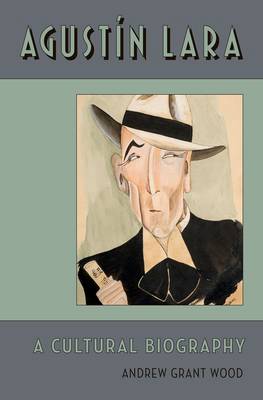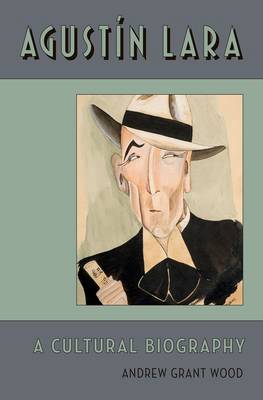
Bedankt voor het vertrouwen het afgelopen jaar! Om jou te bedanken bieden we GRATIS verzending (in België) aan op alles gedurende de hele maand januari.
- Afhalen na 1 uur in een winkel met voorraad
- In januari gratis thuislevering in België
- Ruim aanbod met 7 miljoen producten
Bedankt voor het vertrouwen het afgelopen jaar! Om jou te bedanken bieden we GRATIS verzending (in België) aan op alles gedurende de hele maand januari.
- Afhalen na 1 uur in een winkel met voorraad
- In januari gratis thuislevering in België
- Ruim aanbod met 7 miljoen producten
Zoeken
Omschrijving
Few Mexican musicians in the twentieth century achieved as much notoriety or had such an international impact as the popular singer and songwriter Agustín Lara (1897-1970). Widely known as "el flaco de oro" ("the Golden Skinny"), this remarkably thin fellow was prolific across the genres of bolero, ballad, and folk. His most beloved "Granada", a song so enduring that it has been covered by the likes of Mario Lanza, Frank Sinatra, and Placido Domingo, is today a standard in the vocal repertory. However, there exists very little biographical literature on Lara in English. In Agustín Lara: A Cultural Biography, author Andrew Wood's informed and informative placement of Lara's work in a broader cultural context presents a rich and comprehensive reading of the life of this significant musical figure. Lara's career as a media celebrity as well as musician provides an excellent window on Mexican society in the mid-twentieth century and on popular culture in Latin America. Wood also delves into Lara's music itself, bringing to light how the composer's work unites a number of important currents in Latin music of his day, particularly the bolero. With close musicological focus and in-depth cultural analysis riding alongside the biographical narrative, Agustin Lara: A Cultural Biography is a welcome read to aficionados and performers of Latin American musics, as well as a valuable addition to the study of modern Mexican music and Latin American popular culture as a whole.
Specificaties
Betrokkenen
- Auteur(s):
- Uitgeverij:
Inhoud
- Aantal bladzijden:
- 320
- Taal:
- Engels
- Reeks:
Eigenschappen
- Productcode (EAN):
- 9780199892457
- Verschijningsdatum:
- 11/07/2014
- Uitvoering:
- Hardcover
- Formaat:
- Genaaid
- Afmetingen:
- 155 mm x 236 mm
- Gewicht:
- 539 g

Alleen bij Standaard Boekhandel
+ 280 punten op je klantenkaart van Standaard Boekhandel
Beoordelingen
We publiceren alleen reviews die voldoen aan de voorwaarden voor reviews. Bekijk onze voorwaarden voor reviews.









